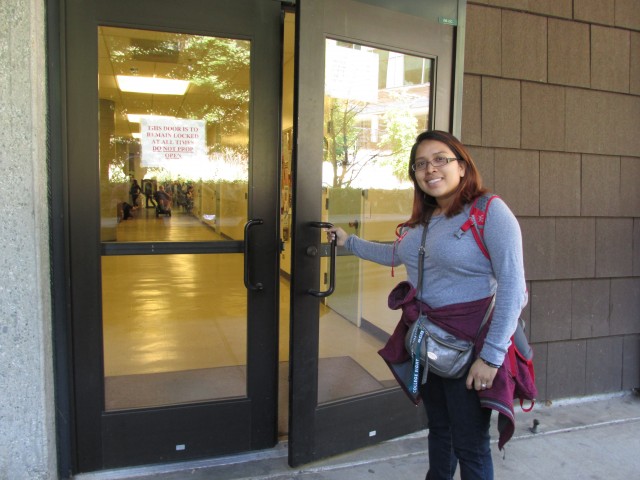
Editor's Note: For students with disabilities, getting to class can be a hurdle, especially when the school campus spans dramatic elevation changes. As part of our first-person series called Vital Signs, this month we explore how the environment affects health. UC Santa Cruz senior, Ariana Rojas talks about her experience navigating her unique campus. A car accident when she was younger left her with arthritis and chronic pain that limit her ability to climb stairs and even to walk without pain.
By Ariana Rojas
Imagine a lot of buildings in the middle of the forest. And like the mountains, there's uphills and downhills and those hills can get very steep.
Freshman year, I would force myself to get up in the morning. [I would say to myself,] 'Go, let's go. You can do it. We can walk up these hills.'
When I would reach the very end, I would be in terrible pain.